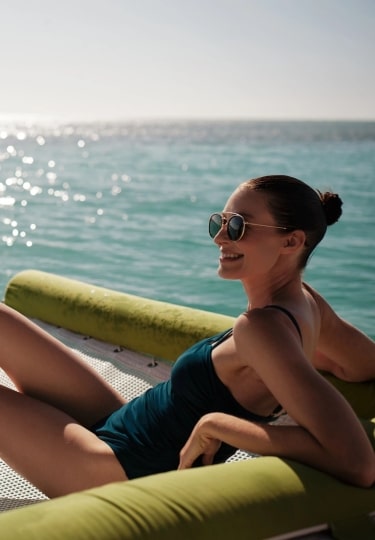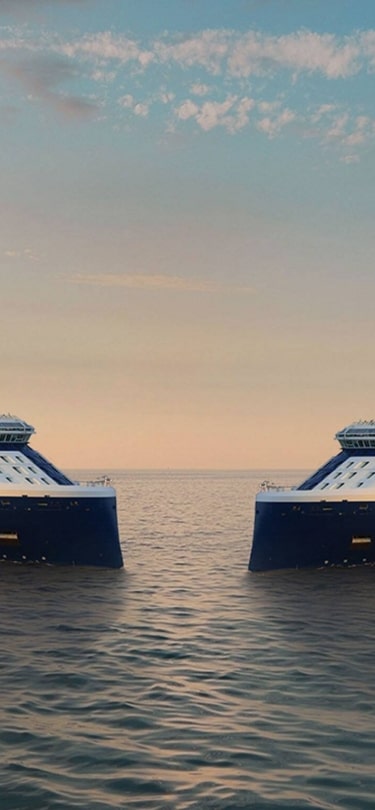There’s no doubt that going on vacation is good for you. But what’s often underestimated is just how good. A vacation, provided you choose the right one, of course, can restore both mental and physical health. It can get you back on the right track to healthy sleep, more wholesome eating, or an exercise routine.
Taking time out can give you the space to reconnect with yourself. It can inspire creativity and expose you to different cultures and ideas. Even a series of short breaks can make an individual more productive than taking no vacation at all. Here’s why we need to take vacation time seriously—and how to make the most of it.
The Science Behind Vacations and Mental Health
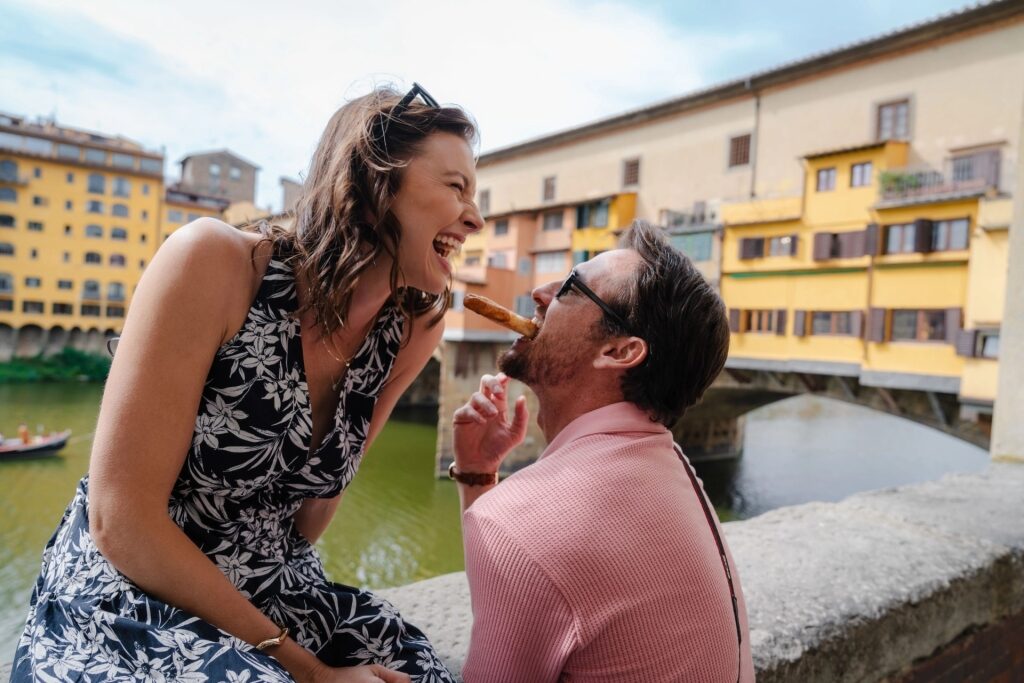
Ponte Vecchio in Florence, Italy
Compared to many other developed countries, Americans get very little annual leave—yet they still struggle to use it.
According to a survey by financial technology company Sorbet of 1,500 U.S. employees, some 62 percent don’t use all their paid time off. Worse still, the share of Americans who don’t use all of their annual leave has nearly doubled from just four years ago.
Five percent of American workers did not take any paid leave in 2023, and Generation Z employees are 15% more likely to say it’s difficult to take time off.
And yet, taking a vacation is without doubt essential to mental health. What’s more, scientific studies show that a good vacation can reduce the impact of heart disease, depression, and burnout. Taking regular vacations actually improves productivity—and even encourages loyalty to employers.
Vacations can improve physical as well as mental health. According to a podcast by the American Psychological Association, two long and complex studies examined healthy people over a period of time and concluded that not taking vacations presented a higher morbidity risk.
Physical separation from stress triggers
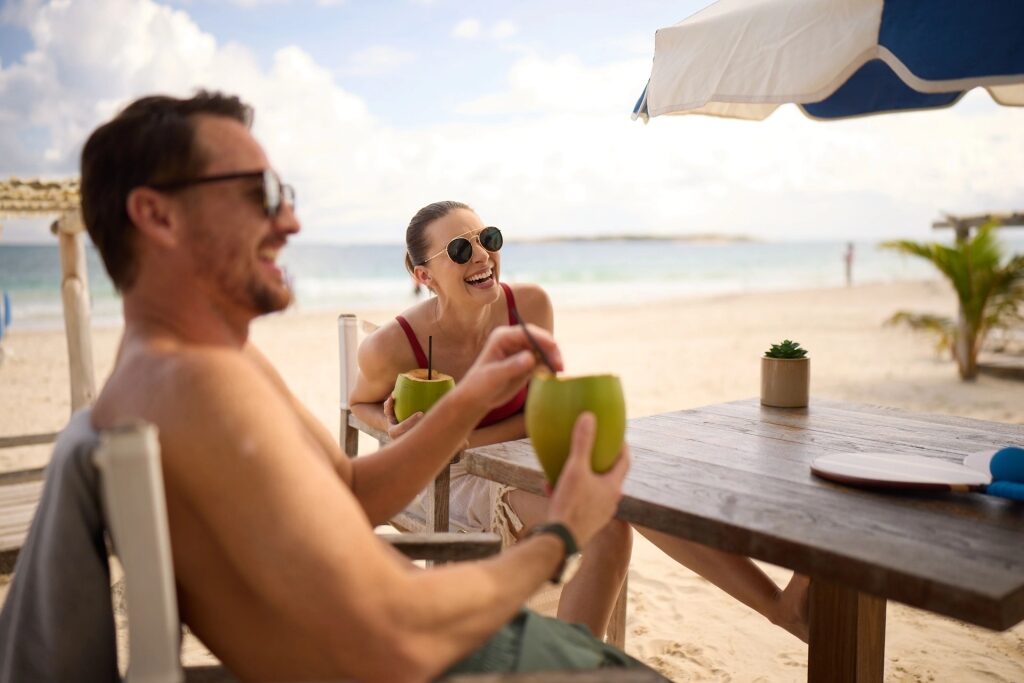
St. Maarten
It’s easy to stop noticing the daily triggers of stress; the ping of an incoming email, a looming deadline, a family commitment that provokes anxiety. This is why going on vacation can be so relaxing; you physically remove yourself from all of this.
A vacation is also a way of regaining perspective. You experience other cultures and see how other people live. They may inspire you—and you may return home feeling grateful for what you have.
Structured relaxation

The Spa, Celebrity Edge
Some of us are so burned out that suddenly trying to relax can be stressful in itself. If this is you, a little help from a wellness expert can set you on the right path. Perhaps treat yourself to a spa visit, where your day is arranged for you. Or simply join a yoga class with an expert who will guide you through the postures.
If you’re traveling with kids or grandkids, designate a couple of hours as “siesta time”; perhaps a set quiet time where they watch a movie and you get to read a book, or head to the spa or a workout class.
Mental Benefits of Vacations: Improving Focus and Productivity
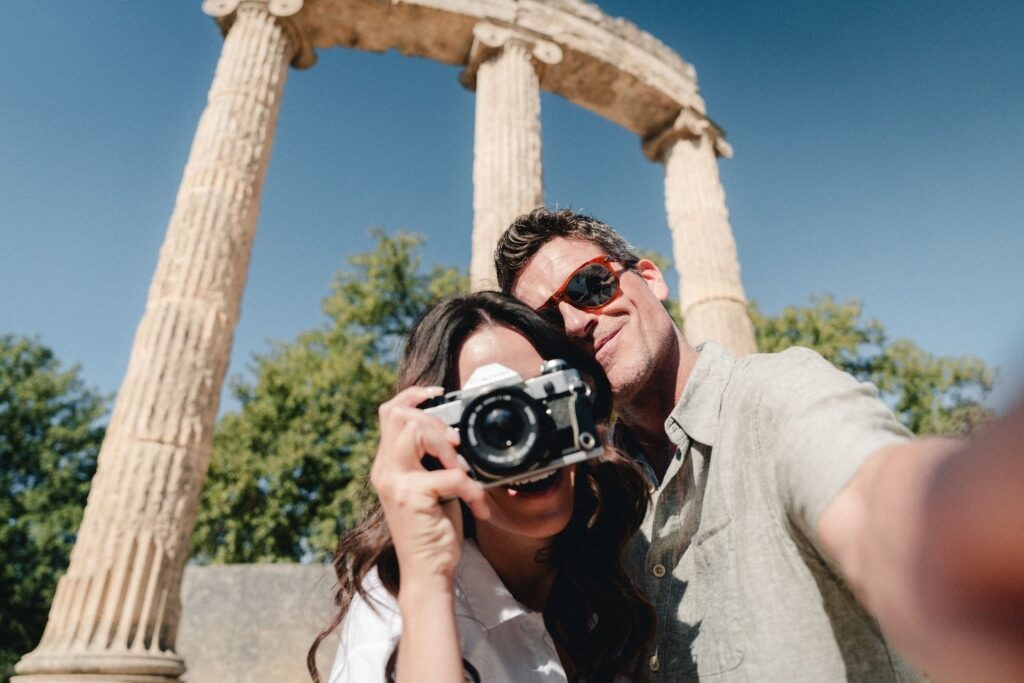
Olympia, Greece
The list of the mental benefits of a vacation is almost endless. Decluttering the mind, reduced cortisol, the fight-or-flight hormone, better sleep, and greater cultural awareness are just a few. Even a series of mini-breaks, if you can’t commit to a longer vacation, has been proven effective in improving focus.
Chronic stress does nobody any good. So changing your surroundings, routine, and interaction with others in a beautiful setting with calming influences can be the first step on the road to greater productivity, not to mention happiness.
One company even found from its own very small study that making vacations mandatory led to a significant boost of creativity, productivity, and happiness.
How Time Off Boosts Creativity and Problem-Solving
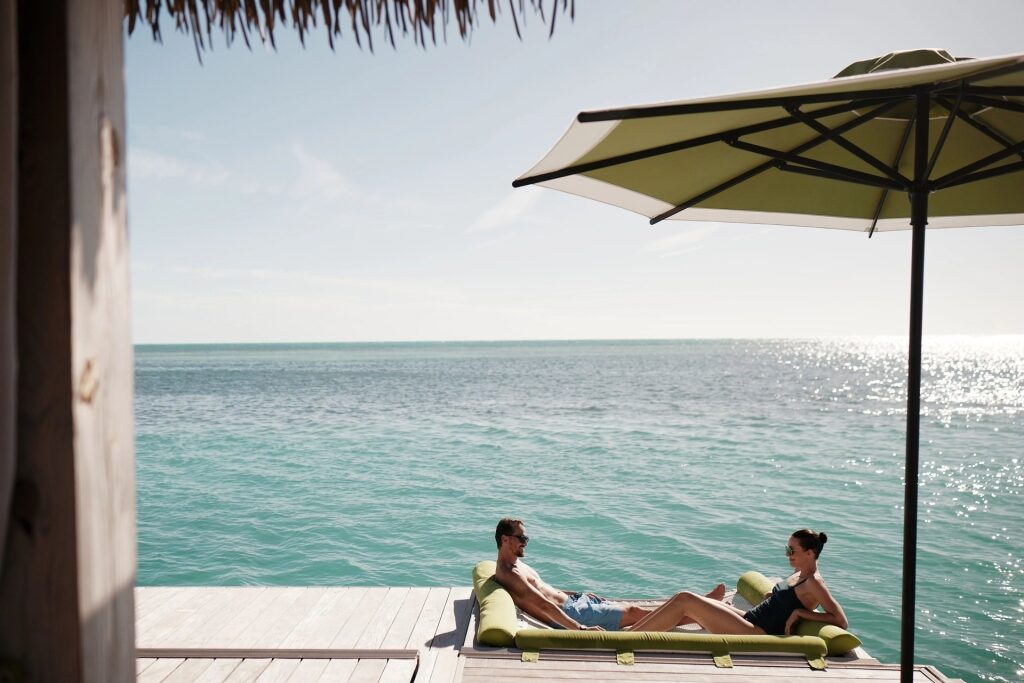
CocoCay, Bahamas
A change of pace and environment declutters the mind and boosts productivity. Feeling rested, sleeping better, feeling positive, and simply having more head space have been proven to make people more effective.
A meta-analysis published in Applied Psychology concluded that vacation time could have a positive mental health impact for an average of about six weeks on return, particularly if people use their vacation time wisely.
Vacations as a Productivity Booster
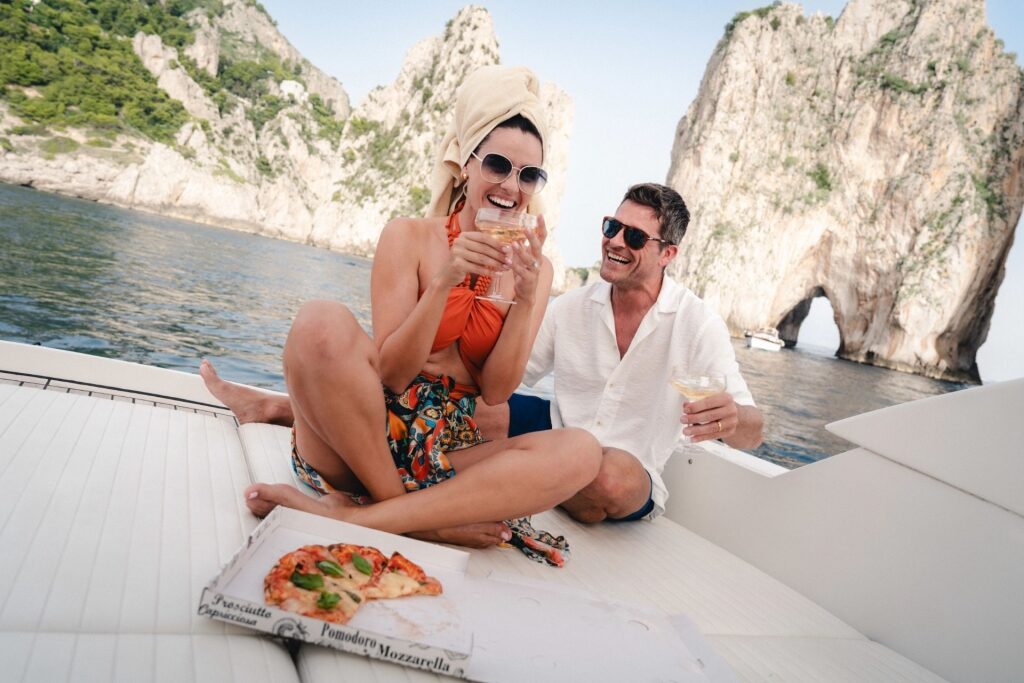
Capri, Italy
Travel broadens the mind and can fill you with inspiration and new ideas. Even taking a vacation that involves little more than relaxing on a lounge chair by the ocean can free up your mind, making space for better focus on your return.
A vacation that exposes you to new cultures, landscapes, languages, food, and music could do even more. A classic example is the story of Lin-Manuel Miranda, writer of the smash hit musical Hamilton, who claims that the idea for the show only came into his head when he’d created the mental space while on vacation in Mexico.
Physical Health Benefits That Lead to Mental Well-Being

Hiking in the Galapagos
The old adage “healthy body, healthy mind” is something to bear in mind when debating whether or not to use up your allowance of annual leave—or observing your employees doing the same. The health benefits of going on vacation—better sleep, more physical activity, vitamin D, healthier eating—are all connected to mental well-being.
The Link Between Physical Health and Mental Calm

Old Town Rhodes, Greece
Being active on vacation, and therefore improving your physical health, can have a tremendous effect on your mental health. A 2018 study published in Lancet Psychiatry followed 1.2 million people to study the relationship between exercise and mental health. Those who exercised for anything between 30 minutes to one hour every day reported two days less of what they perceived as poor mental health every month compared to those who didn’t exercise at all. Better self-esteem, not to mention the dopamine boost from physical activity, were contributing factors.
Having said that, there’s no evidence that over-training or obsessive exercise will promote mental calm; quite the opposite. But simply going for a walk every day on vacation, or taking a swim, will make a difference. Starting a fitness routine—and sticking to it, of course—will result in better heart health and stronger bones in the long term.
Sleep Improvement on Vacation
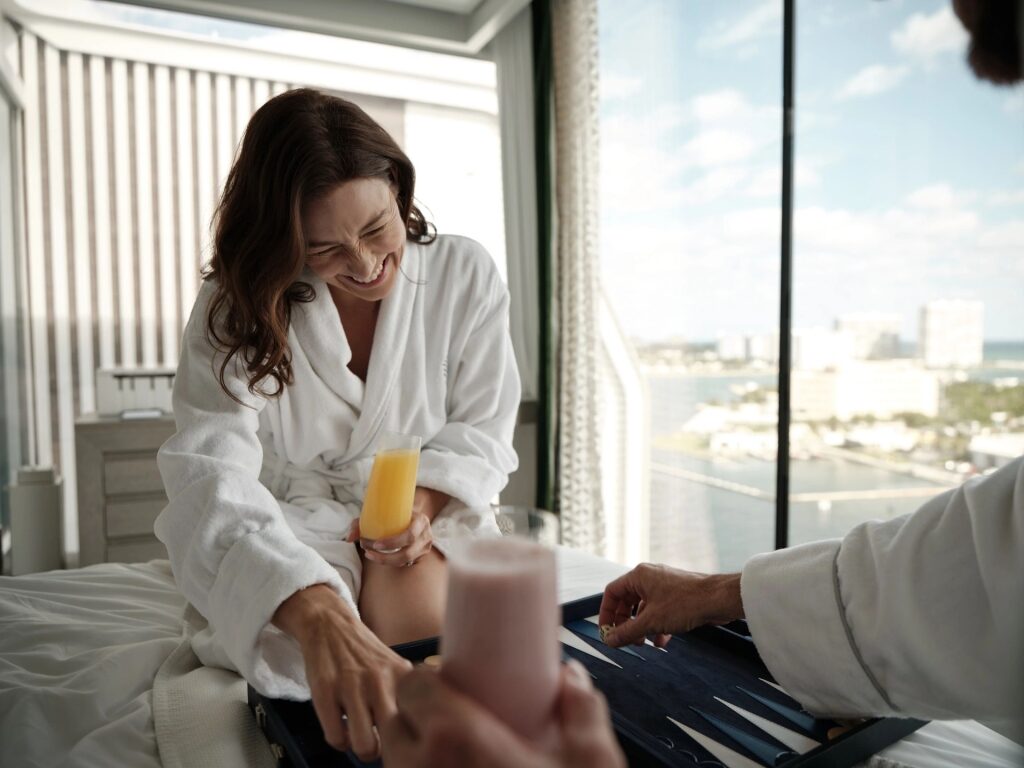
Celebrity Edge Villa Suite
The consequences of sleep deprivation can be severe, and research has found that many of us operate in a state of sleep deficit, which can lead to cognitive impairment, a poorly functioning immune system, and poor decision-making. So where better to reset this pattern than on vacation?
While to many of us, a vacation is about maximizing our time, it’s important to make time to get enough sleep, too. Listen to your body. You may find that your vacation can kick-start a regular sleep routine.
Practice good sleep hygiene while you are on vacation. Allow yourself to rest. Make sure you’re sleeping in a cool, dark room, and minimize screen time before bed. Avoid caffeine late at night and perhaps end the day with herbal tea and a gentle meditation.
Mindfulness on Vacation: How to Be Present and Enjoy Every Moment
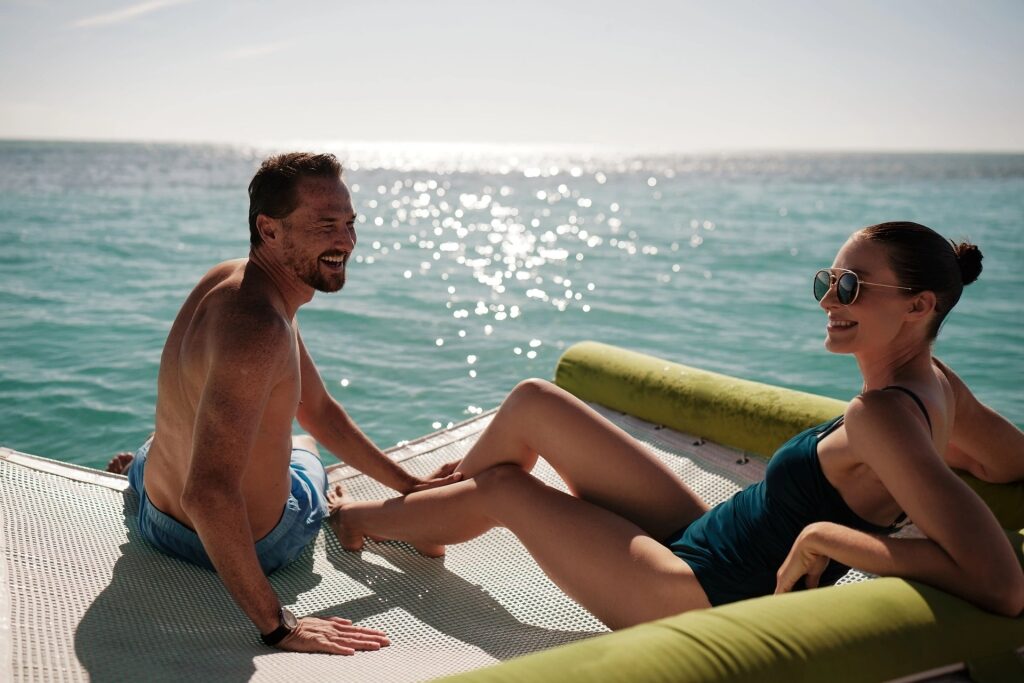
CocoCay, Bahamas
The point of being on vacation is to live in the moment, experiencing new places and cultures, getting active, or simply lying on a beach and soaking up the sun. For any of these to happen, you need to be present. So put your cell phone away. Set your watch to local time so you’re not always thinking about what’s happening at home.
Surround yourself with people who make you feel good, not other people who are burned out, stressing about the office, and bringing their laptops to the pool. Don’t let the negativity of others rub off on you.
Disconnect to Reconnect
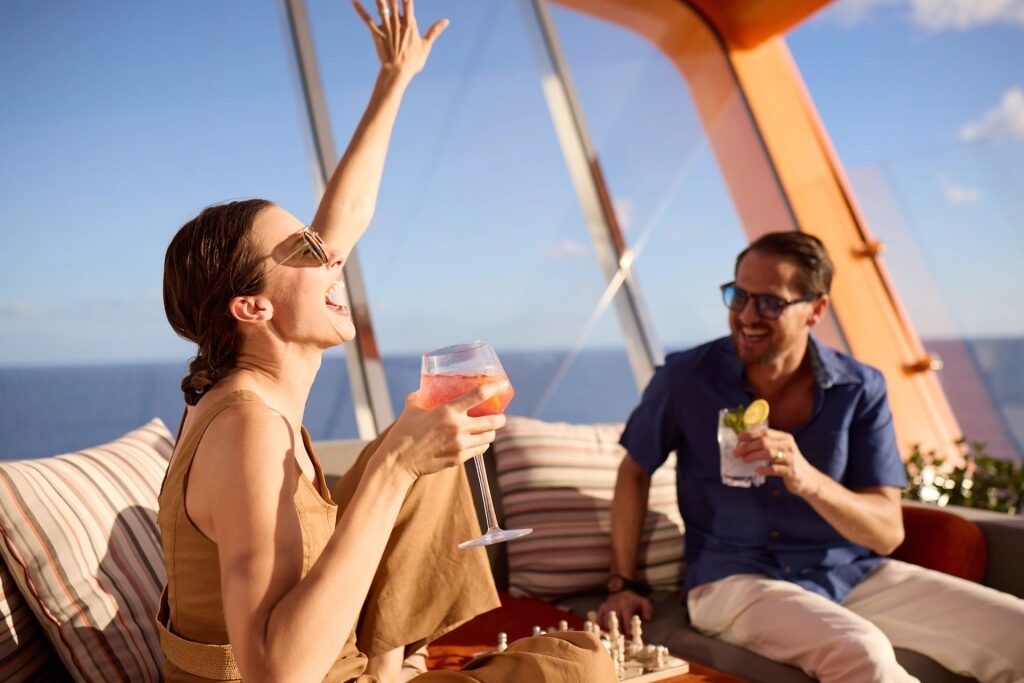
Magic Carpet, Celebrity Apex
Taking a digital detox is absolutely essential on vacation. Otherwise, you’ve simply replaced one location with another, allowing all the same problems to come with you.
Manage expectations with your boss and co-workers. Put an out-of-office response on your email and make sure someone else can handle any crises that may arise in your absence. We’re all so conditioned to reaching for our phones and feeling the need to respond to emails immediately that the first couple of days can feel strange. But the rewards are worth it.
If it really is more stressful to switch off than to check in every now and again, be disciplined. Allow yourself a set time every day to deal with emails and stick to it.
Mindfulness Activities While Traveling
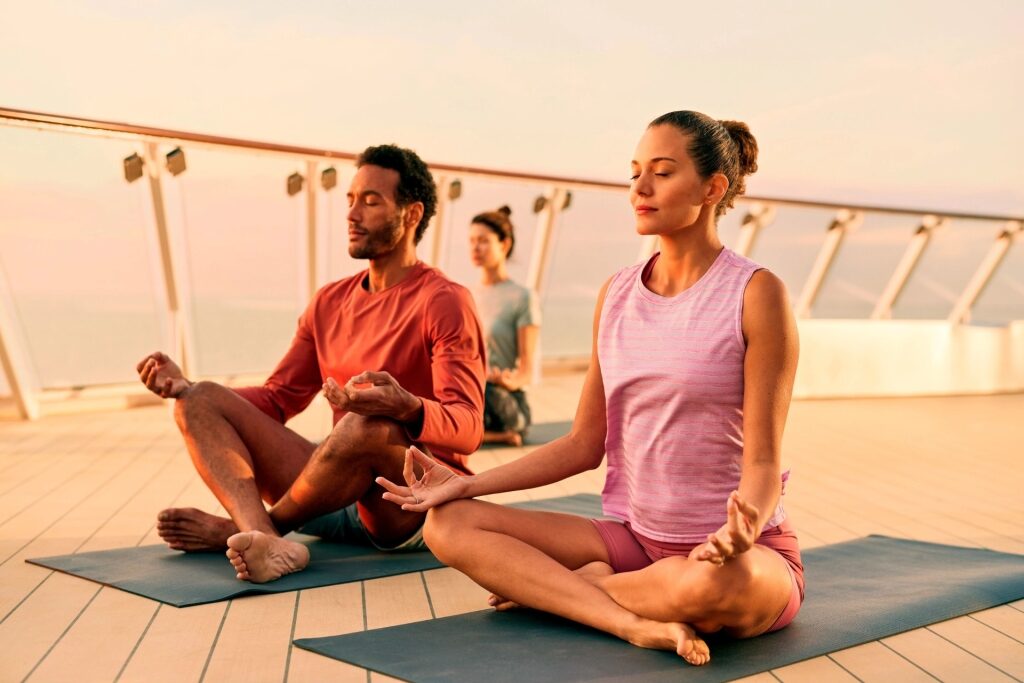
Yoga class, Celebrity Beyond
Next time you plan a vacation, why not set a goal of incorporating some mindfulness practices? You could pack a yoga mat, for example, and start the day with a few rounds of sun salutations, a sequence that stretches every muscle in the body. Or download a meditation app onto your phone and commit to using it every day; Headspace is a good one, a no prior experience is required.
Or you could try journaling. This is way more than keeping a diary; it’s documenting how you feel, as well as simply recording what you’ve done, and has been proven to help mental health. Revisiting a journal when you return home can be interesting, too.
Using Nature to Enhance Mindfulness

Tongass National Forest, Alaska
There’s something about nature that can make you feel a connection with your inner self. Perhaps you’re listening to the wind in the trees of an Alaskan forest, or breathing fresh mountain air. Simply gazing at the ocean can be blissfully meditative.
Try engaging different senses for an unusual experience. Stand in a place where you can hold onto something; the railing of a ship, a lookout point in a forest, for example. Now close your eyes and simply observe the sounds around you: birdsong, the breeze, the breaking of waves, perhaps. Try to focus on the present and gently push intrusive thoughts away. After a few minutes, open your eyes and you’ll be astonished at the sense of calm and the intensity of the colors around you.
Types of Vacations That Best Support Mindfulness and Relaxation
Wellness vacations are growing at an impressive pace. The Global Wellness Institute, an economic think tank, predicts that the global wellness economy will grow at 7.3 percent between now and 2028, by which time it will be worth an astonishing $9 trillion worldwide, taking into account everything from nutrition to spa vacations. So how can you choose the right vacation for your own wellness needs?
Wellness Retreats
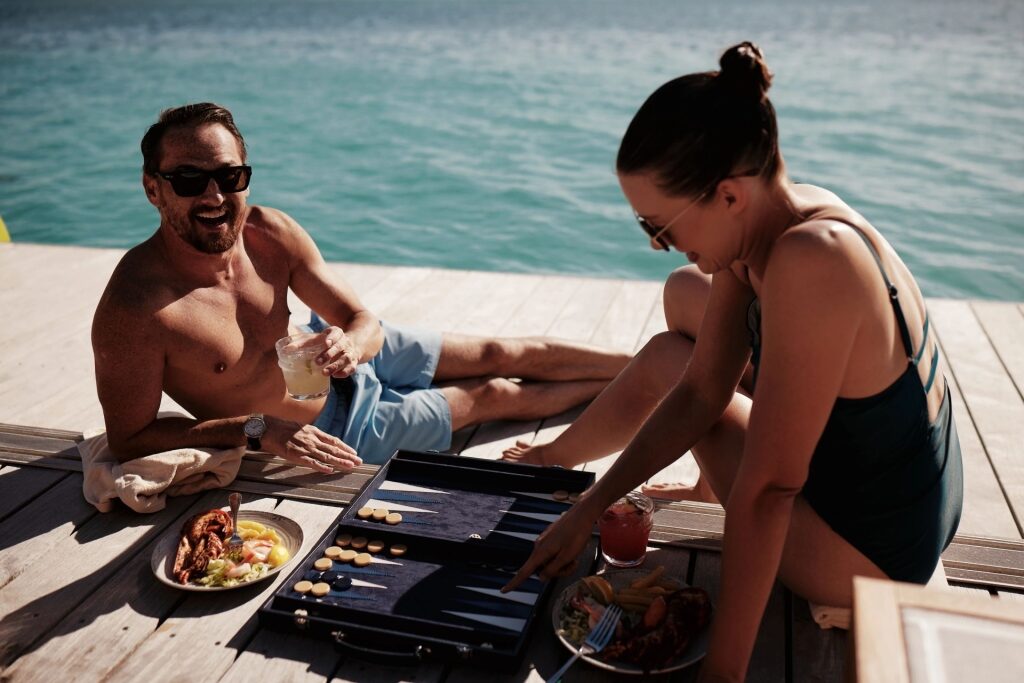
CocoCay, Bahamas
In 2023, the wellness tourism industry worldwide was estimated at $830 billion. The idea of a health-based vacation has changed dramatically over the last 40 years or so, when a spa stay was associated with deprivation.
Nowadays, a wellness retreat can be as spartan or as decadent as you choose. Perhaps you’ll opt for an ayurvedic retreat in India with vegan food, daily yoga and meditation, and massage. Or something more indulgent that combines beauty treatments and cocktails with mental and physical rejuvenation.
Nature-Focused Getaways
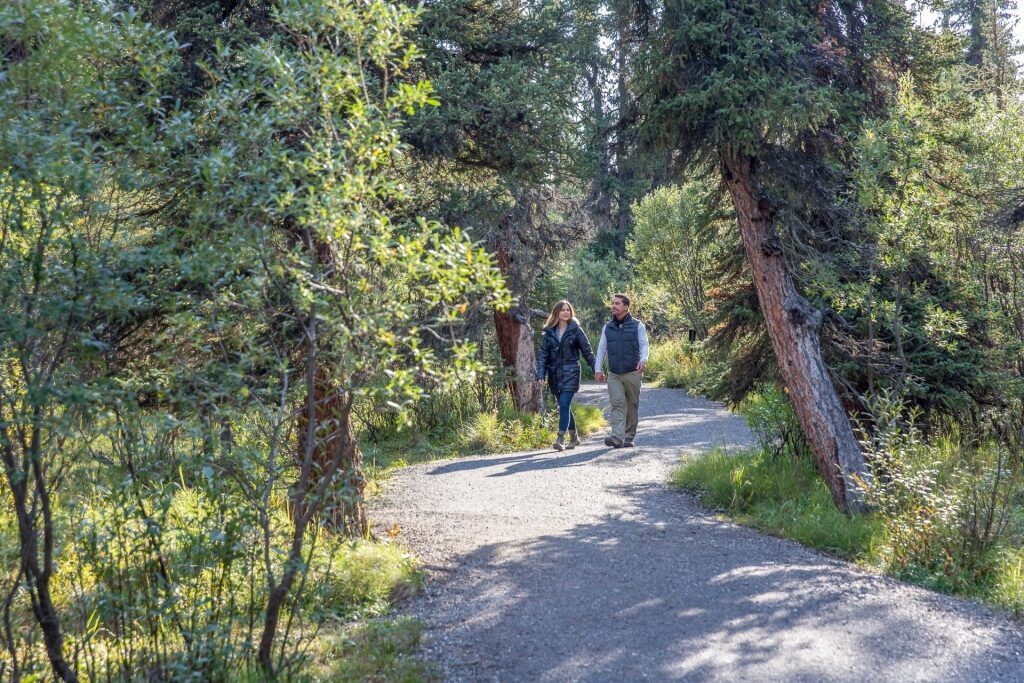
Denali National Park, Alaska
Any vacation that takes you into nature can inspire deep relaxation. Even a day in a national park can make a difference, taking in the scenery and feeling the breeze on your skin.
Some destinations can be truly life-affirming; the wild, majestic beauty of Alaska, for example, or the lush rainforests of Costa Rica. Visitors return from places such as Ecuador’s Galapagos Islands or snow-draped Antarctica as ambassadors, saying what they’ve witnessed has changed them forever.
Cruises for Calm and Rejuvenation
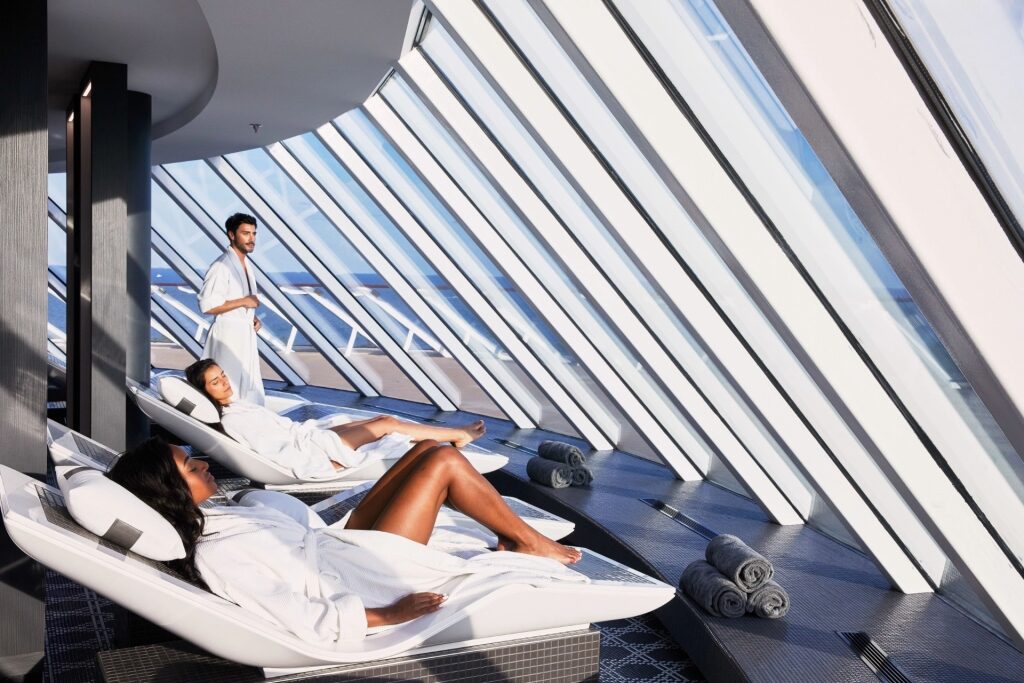
The Spa, Celebrity Edge
A cruise can be a wonderful way to reconnect with yourself and relax. The sea air and ocean views are just the beginning; cruise ships have state-of-the-art spa facilities offering everything from salt meditation rooms to IV lounges. You’ll find spa cafés offering fresh-squeezed juices, clean cuisine menus, and even staterooms and suites with amenities dedicated to wellness.
You can tailor your cruise to your own wellness program. Invest in a spa pass, for example, for access to the soothing thermal suite, where you’ll find an array of steam rooms and saunas. Book a blissful facial, massage, or body wrap. Join a sunrise yoga class on deck, or make the most of the al-fresco jogging track for running while inhaling the sea air.
Choose active and healthy activities ashore, from cycling tours and kayaking to forest hikes. Of course you can still enjoy all the sparkling entertainment and fun of the voyage—but it’s easy to turn a cruise into your own personal wellness journey and return home feeling revived and rejuvenated.
Tips for Maintaining Mindfulness Post-Vacation
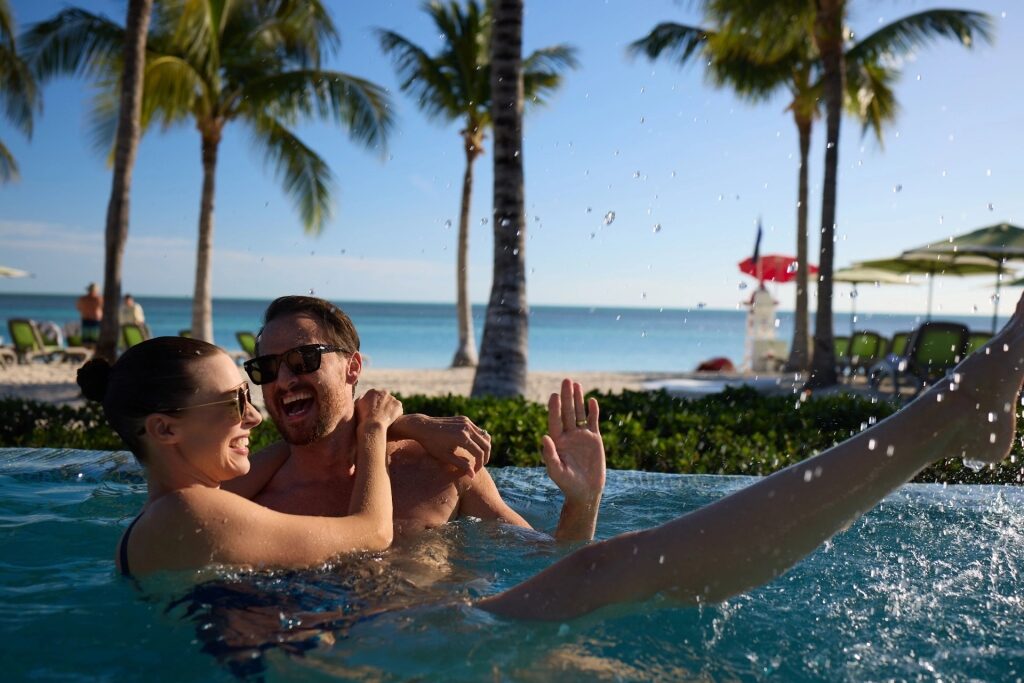
CocoCay, Bahamas
We’ve all done it; returned from vacation feeling on top of the world and full of good resolutions—and then slipped back into unhealthy habits. So how can you help yourself stay in the state of calm you achieved when you stepped out of your daily routine?
Bringing Mindfulness Practices Home
First, give yourself a decent chance to maintain your vacation calm. Be kind to yourself on the first few days back home; don’t over-schedule the first few days back, or come back to stress-inducing deadlines. Plan a few relaxing evenings at home, or something you can look forward to to create a soft landing.
Creating a Calming Daily Routine
Think about the wellness practice you enjoyed on vacation. Was it exercising every day? Or making time for meditation? Enjoying surrendering to the pleasure of a really good massage? Or the much-needed digital detox? There’s no reason why these pleasurable habits can’t be maintained once you’re back home.
Make time in your day for calm, whether it’s a few minutes when you wake up or an hour in the evening when you disconnect from social media. If you’ve started journaling on vacation and enjoy it, keep the practice going back home. Also, find time for mini-vacations to places that make you happy; don’t wait a whole year before taking another vacation. A day trip to the beach or a weekend hike in nature can be just as effective as the big trip.
Conclusion
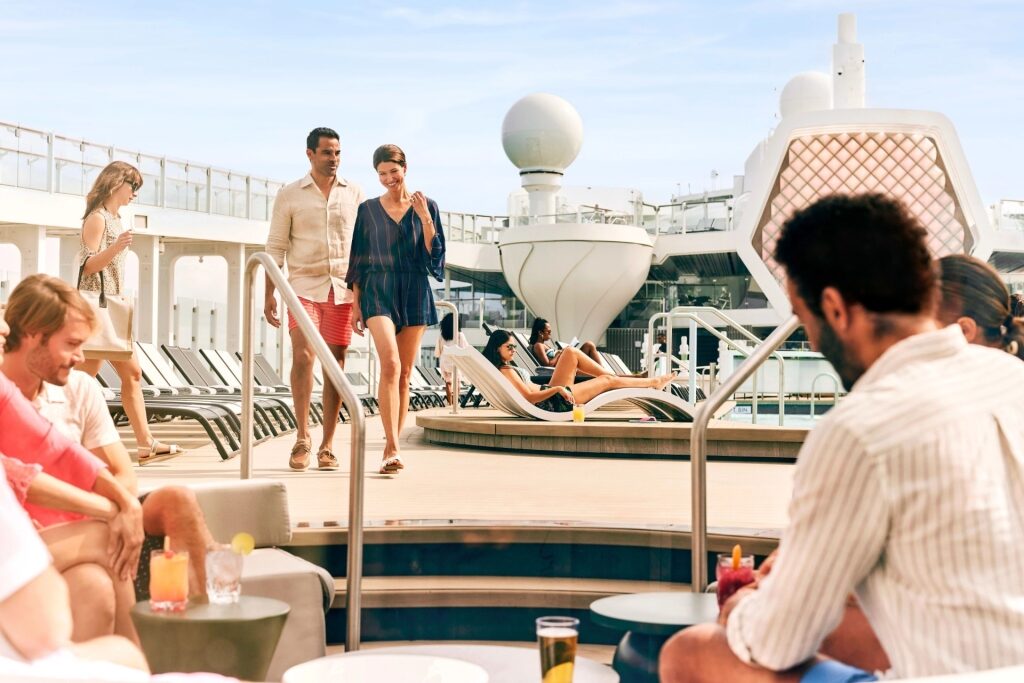
Resort Deck, Celebrity Beyond
Essentially, there are dozens of compelling reasons to take regular vacations—and none for depriving yourself of this opportunity to reset and recharge. You’ll be happier, healthier, more productive, and better connected to your true self—that person who got swamped by all the noise and pressure of daily life.
A vacation can be life-changing; a chance to see the bigger picture. It can reconnect you with what you really want. Whether your dream is to sit on a beach with a cocktail watching a tropical sunset, spend time in a sumptuous spa, or immerse yourself in an entirely different culture, don’t miss out. Prioritize your mental health and you won’t regret it.
